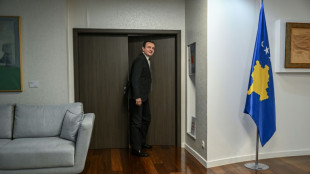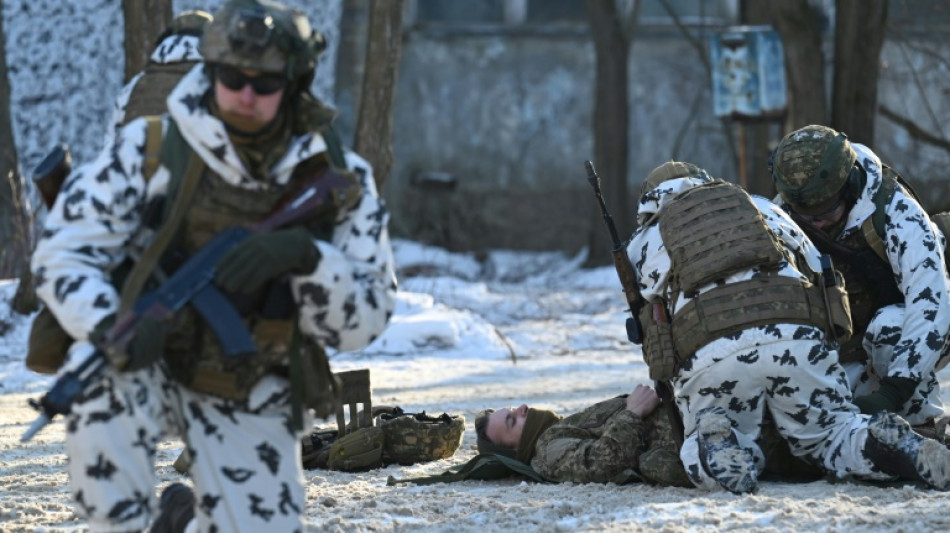
-
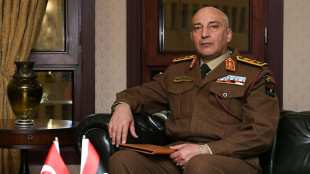 Black box recovered from Libyan general's crashed plane
Black box recovered from Libyan general's crashed plane
-
Festive lights, security tight for Christmas in Damascus
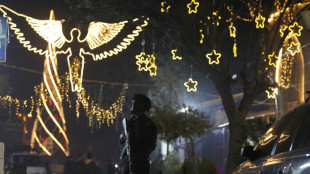
-
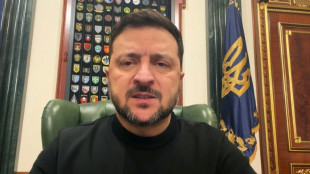 Zelensky reveals US-Ukraine plan to end Russian war, key questions remain
Zelensky reveals US-Ukraine plan to end Russian war, key questions remain
-
El Salvador defends mega-prison key to Trump deportations
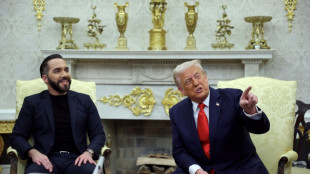
-
 Stranger Things set for final bow: five things to know
Stranger Things set for final bow: five things to know
-
Grief, trauma weigh on survivors of catastrophic Hong Kong fire

-
 Asian markets mixed after US growth data fuels Wall St record
Asian markets mixed after US growth data fuels Wall St record
-
Stokes says England player welfare his main priority
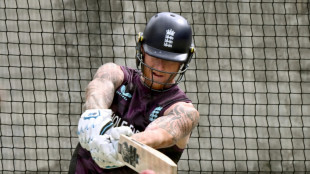
-
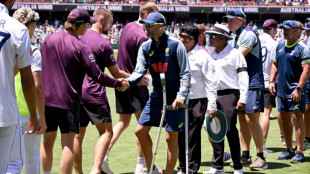 Australia's Lyon determined to bounce back after surgery
Australia's Lyon determined to bounce back after surgery
-
Stokes says England players' welfare his main priority
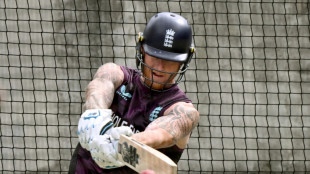
-
 North Korean POWs in Ukraine seeking 'new life' in South
North Korean POWs in Ukraine seeking 'new life' in South
-
Japanese golf star 'Jumbo' Ozaki dies aged 78

-
 Johnson, Castle shine as Spurs rout Thunder
Johnson, Castle shine as Spurs rout Thunder
-
Thai border clashes hit tourism at Cambodia's Angkor temples

-
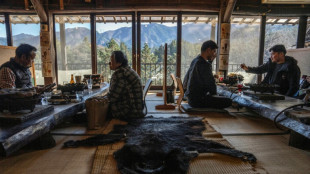 From predator to plate: Japan bear crisis sparks culinary craze
From predator to plate: Japan bear crisis sparks culinary craze
-
Asian markets mostly up after US growth fuels Wall St record

-
 'Happy milestone': Pakistan's historic brewery cheers export licence
'Happy milestone': Pakistan's historic brewery cheers export licence
-
Chevron: the only foreign oil company left in Venezuela

-
 US denies visas to EU ex-commissioner, four others over tech rules
US denies visas to EU ex-commissioner, four others over tech rules
-
Koepka leaves LIV Golf: official

-
 US slams China policies on chips but will delay tariffs to 2027
US slams China policies on chips but will delay tariffs to 2027
-
Arsenal reach League Cup semis with shoot-out win over Palace

-
 Contenders Senegal, Nigeria start Cup of Nations campaigns with wins
Contenders Senegal, Nigeria start Cup of Nations campaigns with wins
-
Tunisia ease past Uganda to win Cup of Nations opener

-
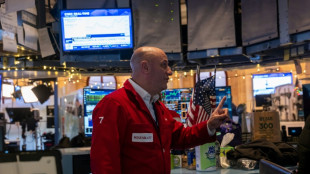 S&P 500 surges to record after strong US economic report
S&P 500 surges to record after strong US economic report
-
UK police say no action against Bob Vylan duo over Israel army chant
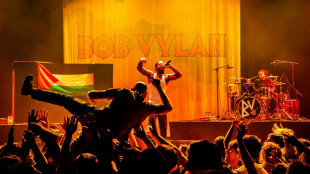
-
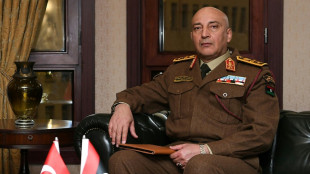 Libya's top military chief killed in plane crash in Turkey
Libya's top military chief killed in plane crash in Turkey
-
Venezuela passes law to jail backers of US oil blockade
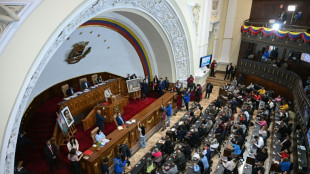
-
 French parliament passes emergency budget extension
French parliament passes emergency budget extension
-
Trump in Epstein files: five takeaways from latest release
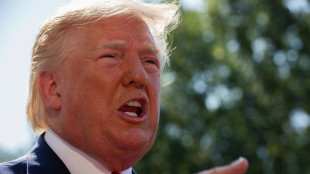
-
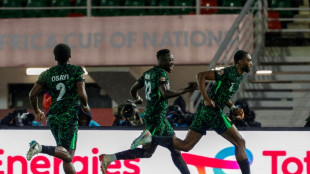 Wasteful Nigeria open AFCON campaign with narrow win over Tanzania
Wasteful Nigeria open AFCON campaign with narrow win over Tanzania
-
Ukraine retreats in east as Russian strikes kill three, hit energy
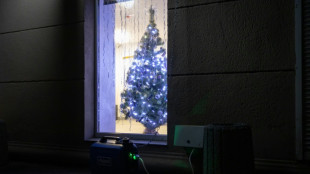
-
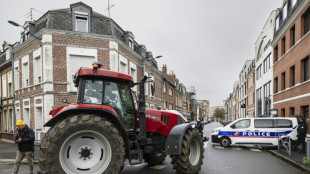 Macron meets French farmers in bid to defuse anger over trade deal
Macron meets French farmers in bid to defuse anger over trade deal
-
Ineos snap up Scotsman Onley

-
 World is 'ready' for a woman at helm of UN: Chile's Bachelet tells AFP
World is 'ready' for a woman at helm of UN: Chile's Bachelet tells AFP
-
Real Madrid's Endrick joins Lyon on loan

-
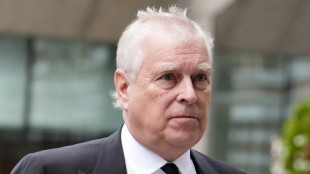 Latest Epstein files renew scrutiny of Britain's ex-prince Andrew
Latest Epstein files renew scrutiny of Britain's ex-prince Andrew
-
US consumer confidence tumbles in December

-
 Norwegian biathlete Sivert Guttorm Bakken found dead in hotel
Norwegian biathlete Sivert Guttorm Bakken found dead in hotel
-
UK comedian Russell Brand faces two new rape, assault charges: police

-
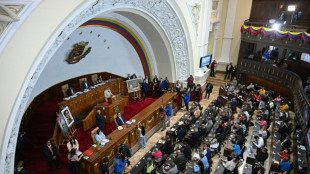 Venezuela seeks to jail backers of US oil blockade
Venezuela seeks to jail backers of US oil blockade
-
Norwegian biathlete Sivert Guttorm Bakken found dead

-
 Wall Street stocks edge higher
Wall Street stocks edge higher
-
Vietnam Communist Party endorses To Lam to stay in top job
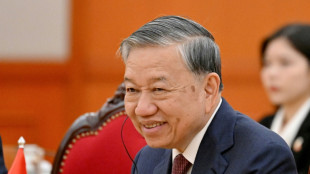
-
 US economic growth surges in 3rd quarter, highest rate in two years
US economic growth surges in 3rd quarter, highest rate in two years
-
Frank defends Van de Ven after Slot slams 'reckless' foul on Isak

-
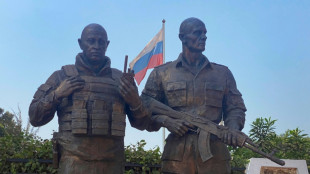 Russian paramilitaries in CAR say take election threat 'extremely seriously'
Russian paramilitaries in CAR say take election threat 'extremely seriously'
-
Trump in the Epstein files: five takeaways from latest release
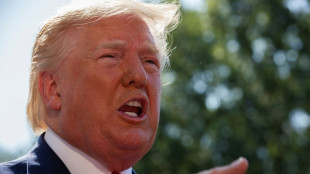
-
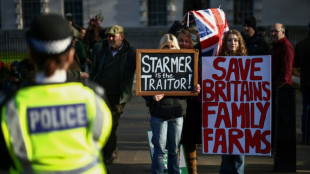 UK govt to relax farmers inheritance tax after protests
UK govt to relax farmers inheritance tax after protests
-
Pakistani firm wins auction for state airline PIA
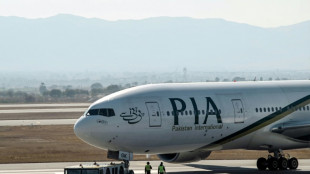

In Chernobyl ghost town, Ukraine forces train for combat
Machine gun fire echoed through the abandoned buildings of Pripyat in the Chernobyl Exclusion Zone, as Ukrainian National Guard troops on Friday staged urban combat exercises.
The live-fire training -- carried out in one of the most radioactive places on earth -- came as warnings swirl over a potential Russian invasion.
Moscow has massed over 100,000 troops along Ukraine's border -- including deploying personnel to Belarus, which lies just 10 kilometres (six miles) to the north for joint drills.
For Ukraine's forces, the deserted streets and apartment blocks of Pripyat -- empty since residents were evacuated following the nuclear reactor disaster in 1986 -- made an ideal training ground.
Troops in winter camouflage practised clearing armed attackers from buildings, targeted mortar fire and took on snipers in urban conditions.
Emergency service workers staged evacuations -- a speaker on a drone telling residents to clear out -- and fought fires caused by fighting.
"As there are no civilians around here we can conduct exercises with real ammunition in a situation as close to actual urban warfare as possible," said one National Guard serviceman, giving only his call sign Litva.
But conducting exercises inside the exclusion zone has its own risks.
Ahead of the training -- the first of its kind staged in Pripyat -- workers with Geiger counters had to scan the route to check there were no radioactive hotspots.
"It has all been checked and it doesn't present a danger," Litva said confidently, as he clutched his automatic rifle to his chest.
- Radioactive hotspots -
Some Western leaders insist the threat from Russia's massed forces is real and urgent -- but authorities in Kyiv have cautioned against stirring "panic".
Ukraine's defence minister Oleksiy Reznikov played down the likelihood of an incursion by Russian forces sent to Belarus for joint drills.
While the US has said that their number could reach 30,000 -- Reznikov insisted that the "several thousand" Russians currently across the Belarusian frontier were not enough to attack.
He also pointed to difficult terrain as a major obstacle -- and the threat from radiation if they tried to push through the exclusion zone towards the capital Kyiv.
"This area is very hard to get through -- forests, swamp, rivers -- it's complicated enough to move by foot let alone with a tank," Reznikov told journalists, who had been ferried into the exclusion zone on a press tour to see the exercises.
"And don't forget that still since the disaster there remain some highly radioactive areas on the route from Belarus."
- Heightened security -
Ukraine's interior minister Denys Monastyrskiy said that due to the spike in tensions security had been stepped up around all nuclear reactors -- including the Chernobyl site, now covered by a mammoth protective sarcophagus.
"We're absolutely sure that the nuclear plant in Chernobyl is not under threat," Monastyrskiy said.
But the National Guard troops in Pripyat were not training to counter a full-scale Russian invasion.
They were instead preparing for the threat from ununiformed infiltrators who might seize buildings and stir unrest across the country.
That was what happened when Russia seized the Crimean peninsula in 2014 and began fuelling a separatist conflict in the east of Ukraine.
Ukraine's authorities insist that type of internal destabilisation remains their biggest worry.
"We have to show our readiness to react to all events," said Monastyrskiy
Ch.Havering--AMWN
